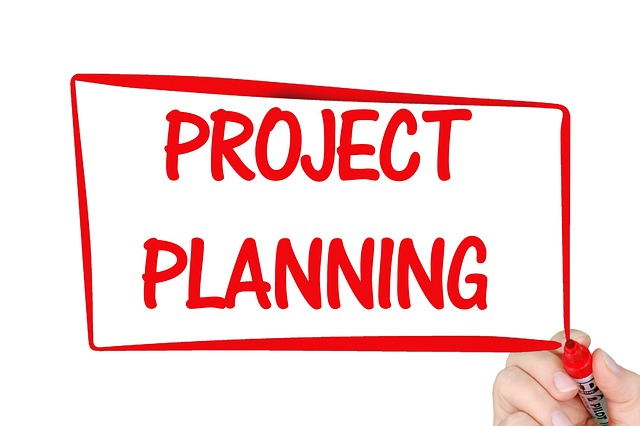Event planning for local businesses is a multifaceted approach that deepens consumer connections and amplifies brand presence within the community. By aligning events with community interests and values, these businesses create engaging experiences that not only promote their brand but also integrate into the social fabric of the neighborhood. Successful event planning requires a keen understanding of the local market, including demographics, preferences, and trends, to design relevant and enticing events that attract specific audience segments. This enhances customer interaction, boosts satisfaction, fosters loyalty, and stimulates word-of-mouth referrals—all critical for expansion.
An effective event strategy also involves clear objectives, market research, venue and timing selection, logistics management, and leveraging local partnerships, vendors, and targeted marketing campaigns to ensure a well-attended and impactful experience. Post-event feedback collection and analysis are essential for continuous improvement, with key performance indicators such as social media engagement, website traffic, and conversion rates being pivotal in evaluating success. Utilizing CRM systems enhances this process by providing tailored post-event communications that further engage customers and uncover new business opportunities. By mastering these strategic event planning techniques, local businesses can differentiate themselves, consistently deliver exceptional events, and foster lasting relationships with their clientele.
exploration into the transformative power of strategic event planning for local businesses reveals a wealth of opportunities for community engagement and growth. This article delves into the nuances of crafting impactful events that resonate with the local populace, offering a comprehensive guide for entrepreneurs eager to elevate their market presence. By examining the interplay between well-conceived events and business analytics, we’ll uncover methods to measure success effectively, ensuring every gathering serves as a stepping stone toward thriving in the competitive landscape of local commerce. Join us as we navigate the intricacies of ‘Event Planning for Local Businesses,’ a vital discipline that blends tradition with innovation for compelling results.
- Leveraging Community Engagement: Strategic Event Planning for Local Business Growth
- Crafting Impactful Events: A Step-by-Step Guide for Local Entrepreneurs
- Measuring Success: Analytics and Feedback in Local Business Event Planning
Leveraging Community Engagement: Strategic Event Planning for Local Business Growth

Community engagement is a cornerstone in the strategic event planning for local businesses, fostering deeper connections and brand loyalty among consumers. By aligning events with community interests and values, local businesses can create meaningful experiences that resonate with attendees. These tailored gatherings not only raise awareness of the business but also position it as an integral part of the neighborhood’s social fabric. Incorporating feedback from community members ensures that events are relevant and appealing, thereby attracting a targeted audience. This approach not only enhances customer engagement and satisfaction but also encourages word-of-mouth promotion, which is invaluable for local businesses looking to expand their reach within the community.
Strategic event planning requires meticulous organization and an understanding of local demographics, preferences, and trends. Local businesses must identify key moments and cultural occasions that can be leveraged to host events, creating opportunities for customers to interact with the brand in a meaningful way. By offering unique experiences that are both memorable and engaging, these businesses can differentiate themselves from competitors. The strategic use of events as part of a broader marketing mix helps local enterprises to not only drive immediate sales but also to cultivate long-term customer relationships, ultimately contributing to sustainable growth and a strong community presence.
Crafting Impactful Events: A Step-by-Step Guide for Local Entrepreneurs

Crafting impactful events is a cornerstone strategy for local businesses aiming to enhance their visibility, engage with the community, and drive sales. Event planning for local businesses requires a thoughtful approach that aligns with both brand values and customer interests. To begin, identify the event’s purpose; whether it’s launching a new product, celebrating an anniversary, or building brand awareness, clear objectives will guide the planning process. Utilize market research to understand your target audience’s preferences and tailor the event experience accordingly.
Once the goals are set, the next step is to conceptualize the event format. Local entrepreneurs should consider venue selection, timing, and logistics that accommodate their customer base. A successful event often hinges on a well-curated guest list, which can be achieved through email marketing, social media campaigns, and local partnerships. Engage with vendors and service providers who can elevate the event with quality offerings. In the lead-up to the event, promote it through various channels to maximize attendance and impact. Remember to gather feedback post-event to refine future endeavors and to measure the event’s success against your initial objectives. This iterative process will enhance the effectiveness of event planning for local businesses, ensuring each event is more successful than the last.
Measuring Success: Analytics and Feedback in Local Business Event Planning

In the realm of event planning for local businesses, measuring success is a multifaceted endeavor that extends beyond mere attendance figures. Effective measurement hinges on the integration of analytics and the collection of feedback, both from participants and stakeholders. Analytics tools provide real-time data on attendee engagement, offering insights into which parts of the event resonated most with the audience. Metrics such as social media interactions, website traffic before and after the event, and conversion rates can all serve as indicators of an event’s impact. Additionally, feedback mechanisms like surveys and follow-up interviews enable businesses to gather qualitative data that complements the quantitative analytics. This dual approach ensures a comprehensive understanding of the event’s performance, allowing for targeted improvements and strategies for future events. By aligning these metrics with the event’s initial objectives, local businesses can assess their return on investment and optimize their event planning efforts to achieve greater outcomes.
Furthermore, the integration of customer relationship management (CRM) systems during event planning can enhance the collection and analysis of feedback. These systems not only track interactions but also provide a platform for personalized follow-ups post-event, fostering continued engagement with attendees. The insights gleaned from both analytics and feedback are instrumental in refining marketing strategies, enhancing customer service, and identifying opportunities for business growth. Local businesses that adeptly harness these tools stand to gain a competitive edge by consistently delivering events that meet and exceed the expectations of their target audience.
Local businesses stand to gain significant momentum through strategic event planning, a practice that not only fosters community engagement but also presents avenues for growth and brand visibility. By meticulously crafting events tailored to their unique market, entrepreneurs can create meaningful experiences that resonate with local patrons. The integration of analytics and feedback ensures these gatherings are not only impactful but also measurable in terms of success. For businesses looking to enhance their presence and connect more deeply with their community, event planning for local businesses emerges as a powerful tool. This comprehensive guide equips local entrepreneurs with the insights and actionable steps necessary to host events that capture attention and drive business forward.






